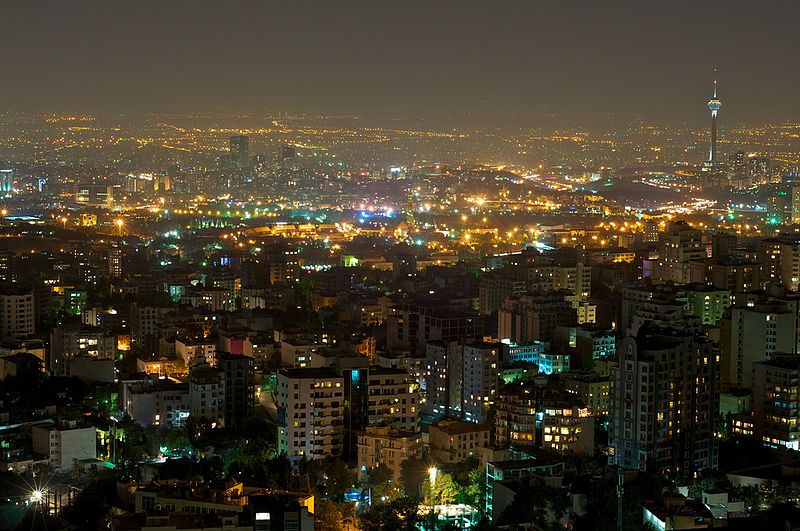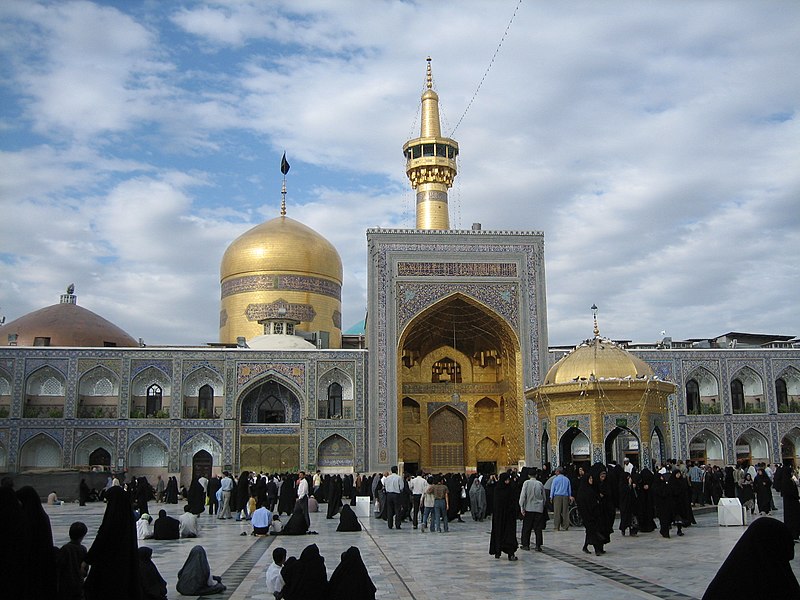Difference between revisions of "Adopting from Iran"
(→Who Can Adopt) |
(→Who Can Be Adopted) |
||
| Line 62: | Line 62: | ||
=Who Can Be Adopted= | =Who Can Be Adopted= | ||
| + | In addition to U.S. immigration requirements, Iran has specific requirements that a child must meet in order to be eligible for legal guardianship: | ||
| + | |||
| + | |||
| + | '''[[Relinquishment]]:''' The child's father, paternal grandfather, and mother must all be either unknown or dead. | ||
| + | |||
| + | '''[[Abandonment]]:''' The child must have been placed under the care of a public institution without any contact from any of the above listed relatives for three full years. | ||
| + | |||
| + | '''Age of Adoptive Child:''' The child must be under 12 full years of age. | ||
| + | |||
| + | '''Sibling Adoptions:''' None | ||
| + | |||
| + | '''[[Special Needs]] or Medical Conditions:''' None | ||
| + | |||
| + | '''Waiting Period or [[Foster Care]]:''' After consulting the institution or person in charge of the child's temporary care, and prior to issuance of [[Legal Custody|legal custody]]/guardianship approval, the court will place the child in the care of the prospective [[Adoptive Parents|adoptive parents]] for a six-month probation period. During the probation period, the court may terminate the guardianship upon request from the Public Prosecutor, the National Society for the Protection of Children, or the institution where the child was previously under care, or on the basis of its own conclusion. Likewise, the prospective [[Adoptive Parents|adoptive parents]] may declare that they have changed their minds during the probation period, in which case the court will terminate the [[Legal Custody|legal custody]]/guardianship. | ||
| + | |||
| + | '''Caution:''' Prospective [[Adoptive Parents|adoptive parents]] should be aware that not all children in orphanages or children’s homes are adoptable. In many countries, including Iran, birth parents place their child(ren) temporarily in an [[orphanage]] or children’s home due to financial or other hardship, intending that the child return home when this becomes possible. In such cases, the [[Birth Parent|birth parent]](s) have rarely relinquished their [[Parental Rights|parental rights]] or consented to their child(ren)’s [[adoption]]. | ||
=How to Adopt= | =How to Adopt= | ||
Revision as of 04:07, 22 March 2014
Contents
Hague Convention Information
Iran is not party to the Hague Convention on Protection of Children and Co-operation in Respect of Intercountry Adoption (Hague Adoption Convention). Intercountry adoptions of children from non-Hague countries are processed in accordance with 8 Code of Federal Regulations, Section 204.3 as it relates to orphans as defined under the Immigration and Nationality Act, Section 101(b)(1)(F).
NOTE: In accordance with current Iranian practice, acquiring legal custody/guardianship by parents residing outside of Iran is not possible. Prospective adoptive parents must be Iranian citizens and fulfill all other required conditions for acquiring legal custody/guardianship. Applications must be submitted to the Iranian Welfare Organization (IWO). Recent cases indicate that applications from close family members have the greatest chance of being approved. Only the IWO and an appropriate court can determine whether each case, based on its own merits, is in the best interests of the child. Muslim children are only eligible for legal custody/guardianship by Muslim parents. Christian children are only eligible for legal custody/guardianship by Christian parents. Before a legal custody/guardianship is granted, strict procedures are applied in order to protect the children and to establish the suitability of prospective adoptive parents, including a six month probationary period during which time at least one of the parents needs to be residing in Iran with the child. In order to leave Iran with the child during the probationary period, the prospective adoptive parent would need to get explicit permission from the public prosecutor. The process is complicated and time-consuming. After a child has been placed with a family, Iranian authorities will perform periodic checks to ensure the child's physical and mental well-being.
The United States does not have diplomatic relations with the Islamic Republic of Iran and therefore cannot provide protection or routine consular services to U.S. citizens in Iran. The Swiss government, acting through its Embassy in Tehran, serves as the protecting power for U.S. interests in Iran and can provide limited consular services to U.S. citizens.
U.S. IMMIGRATION REQUIREMENTS FOR INTERCOUNTRY ADOPTIONS
To bring a legal guardian child to the United States from Iran, you must meet eligibility and suitability requirements. The U.S. Department of Homeland Security, U.S. Citizenship and Immigration Services (USCIS) determines who can adopt under U.S. immigration law.
Additionally, a child must meet the definition of orphan under U.S. immigration law in order to be eligible to immigrate to the United States on an IR-3 or IR-4 immigrant visa.
Who Can Adopt
In addition to U.S. immigration requirements, you must also meet the following requirements in order to adopt a child from Iran:
Residency
Prospective adoptive parents who intend to acquire legal custody/guardianship for children in Iran must reside in Iran and they are required to be physically present in the country for fingerprinting and medical examinations. In addition, there is a six month probationary period and one of the parents may need to stay with the child during this period.
Age of Adopting Parents
One of the prospective adoptive parents must be at least 30 years old.
Marriage
The prospective adoptive couple must be married for at least five years with no children. Lesbian, Gay, Bisexual, and Transsexual couples/individuals cannot acquire legal custody/guardianship of an orphan in Iran. Single women can only obtain guardianship of female children in Iran. Single men cannot acquire legal custody/guardianship of children in Iran.
Income
The prospective adoptive couple is expected to have sufficient financial capacity to support the child.
Other
Muslim and Christian prospective adoptive couples must have no criminal records, no addiction to drugs or alcohol and no diseases that are difficult to cure. If the couple is able to submit a medical report to prove that at least one of the spouses is incapable of conceiving, the court may exempt them from the requirements of five years of marriage and one of the parents being at least 30 years old.
Who Can Be Adopted
In addition to U.S. immigration requirements, Iran has specific requirements that a child must meet in order to be eligible for legal guardianship:
Relinquishment: The child's father, paternal grandfather, and mother must all be either unknown or dead.
Abandonment: The child must have been placed under the care of a public institution without any contact from any of the above listed relatives for three full years.
Age of Adoptive Child: The child must be under 12 full years of age.
Sibling Adoptions: None
Special Needs or Medical Conditions: None
Waiting Period or Foster Care: After consulting the institution or person in charge of the child's temporary care, and prior to issuance of legal custody/guardianship approval, the court will place the child in the care of the prospective adoptive parents for a six-month probation period. During the probation period, the court may terminate the guardianship upon request from the Public Prosecutor, the National Society for the Protection of Children, or the institution where the child was previously under care, or on the basis of its own conclusion. Likewise, the prospective adoptive parents may declare that they have changed their minds during the probation period, in which case the court will terminate the legal custody/guardianship.
Caution: Prospective adoptive parents should be aware that not all children in orphanages or children’s homes are adoptable. In many countries, including Iran, birth parents place their child(ren) temporarily in an orphanage or children’s home due to financial or other hardship, intending that the child return home when this becomes possible. In such cases, the birth parent(s) have rarely relinquished their parental rights or consented to their child(ren)’s adoption.
How to Adopt
Adoption Authority
The Process
Traveling Abroad
After Adoption
SOURCE
Intercountry Adoption, Bureau of Consular Affairs. U.S. Department of State Country Information







